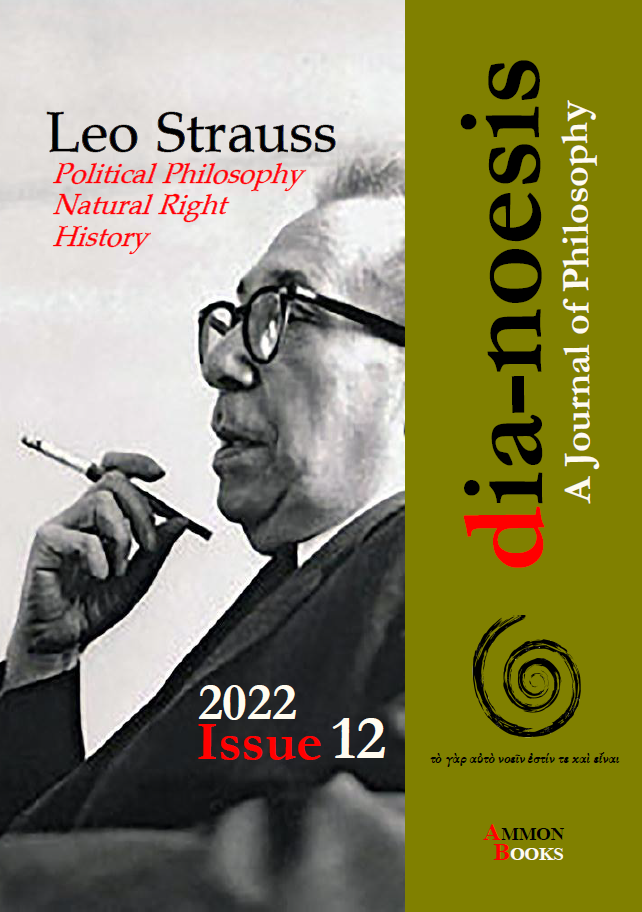Jerusalem and Athens against Rome Leo Strauss’ critique of Edmund Burke’s political logic

Abstract
Leo Strauss never stopped questioning the three great Western traditions. The first was Judaism and the paradox of understanding it in the orthodox way in the modern era. His writings on Moses Maimonides are an attempt to present a coherent version of what he called “moderate Enlightenment”, an intellectual world where Moses and the prophets could be heard and understood for their reason. The second was an immoderate attachment to Plato and Platonism. In Philosophie und Gesetz (1935) he asserts that all great medieval philosophers of Judaism and Islam were platonicians. Strauss establishes a kind of alliance between the Ancients and the Medieval, forged around the profound harmony between Plato and Moses. The third tradition concerns his critique on “radical Enlightenment” and historicism, whose existential translation would be the assimilation of the Jewish people to the West (Die Religionskritik Spinozas, 1930). In his Natural Law and History (1950), he considers Edmund Burke to be the true father of the “historical school”, that lead to Hegelian radical historicism. He sides then with Plato and the Ancients forming an alliance against Cicero, Burke, and Modern political philosophy that defended the historical provenance of the Law. Athens and Jerusalem against Rome is the battle around the fundamental understanding of the Law, its origin and structure.
Article Details
- How to Cite
-
Christias, P. (2024). Jerusalem and Athens against Rome Leo Strauss’ critique of Edmund Burke’s political logic. Dia-Noesis: A Journal of Philosophy, 12, 109–144. https://doi.org/10.12681/dia.37799
- Section
- Articles


